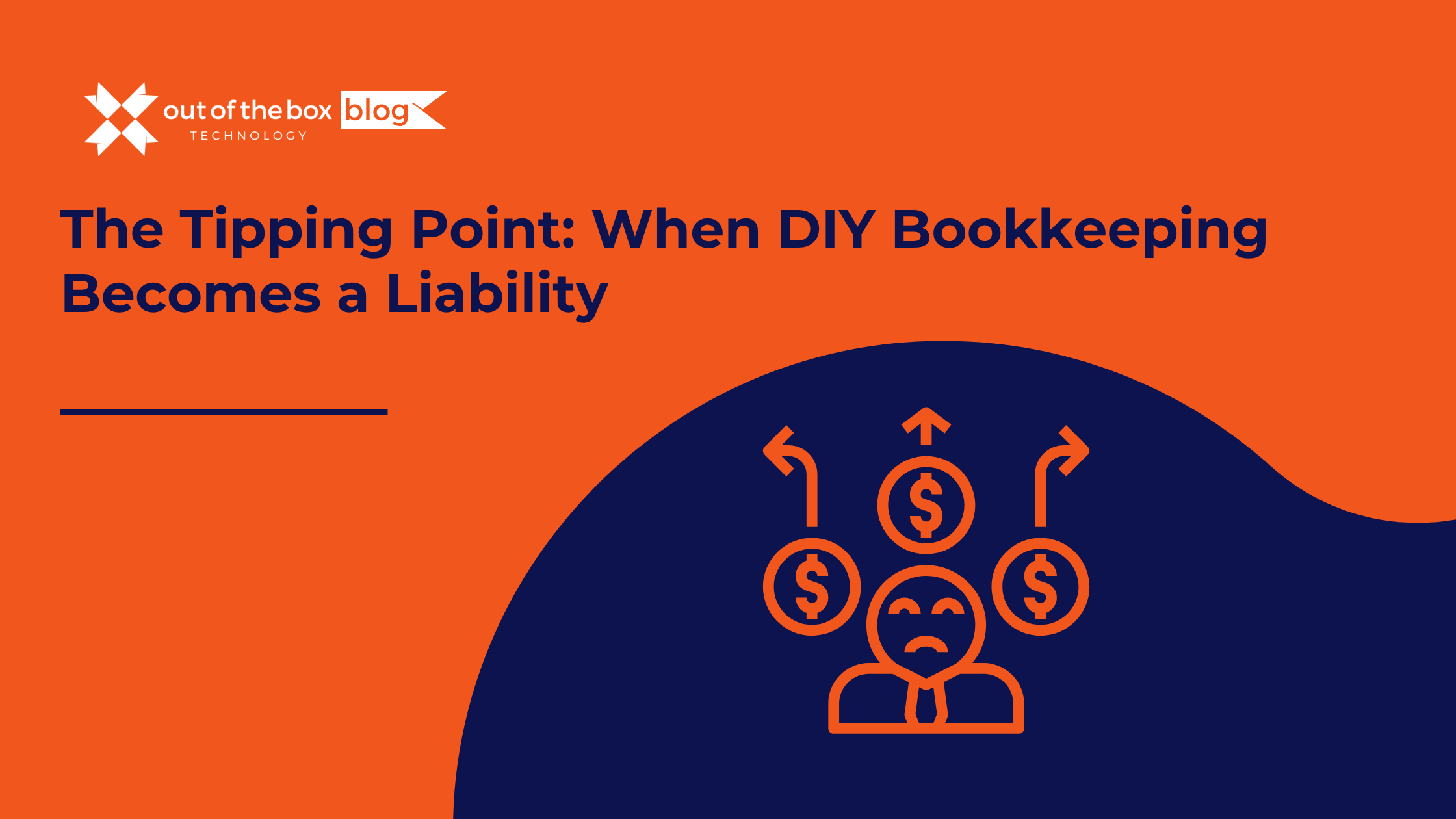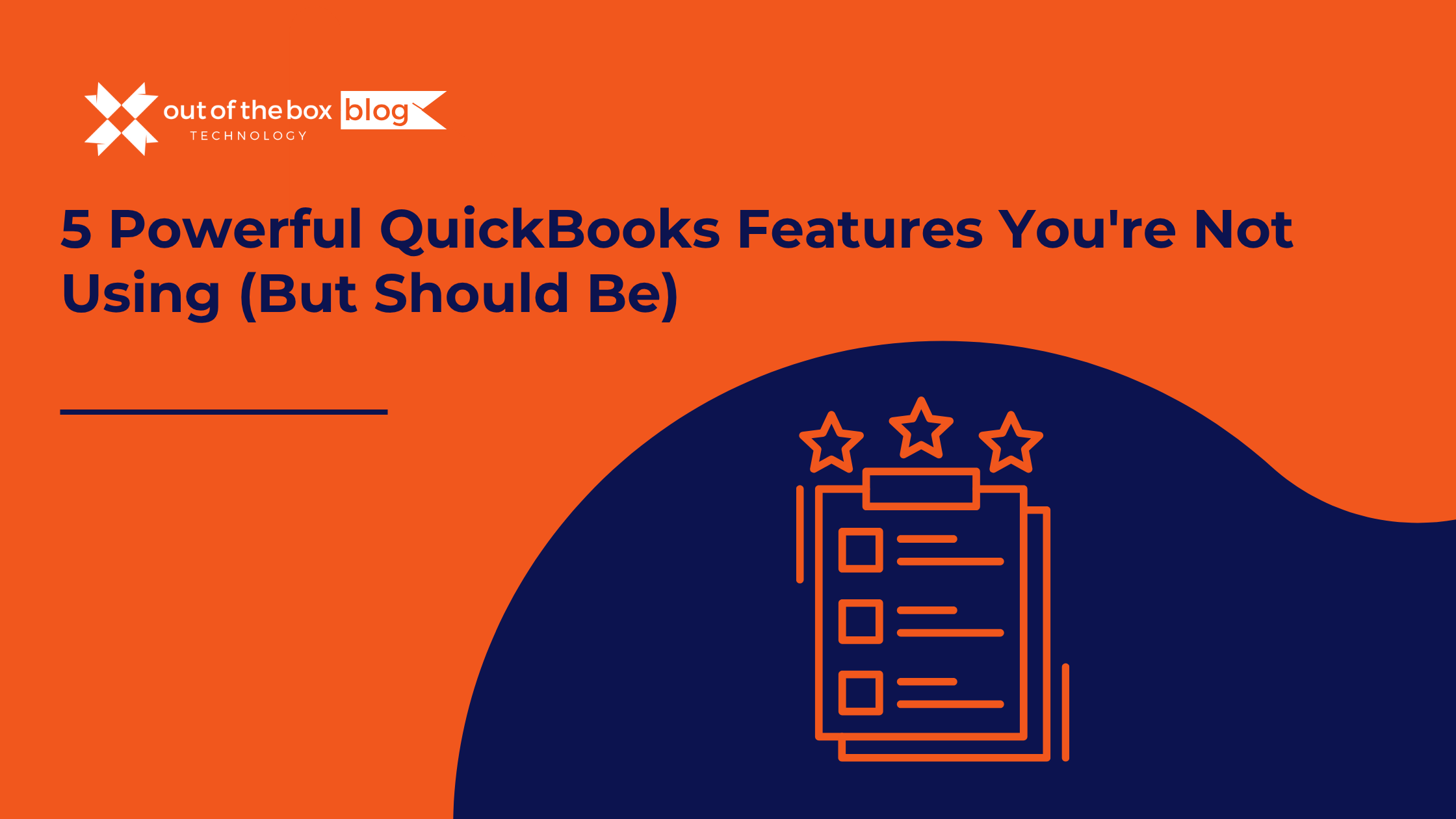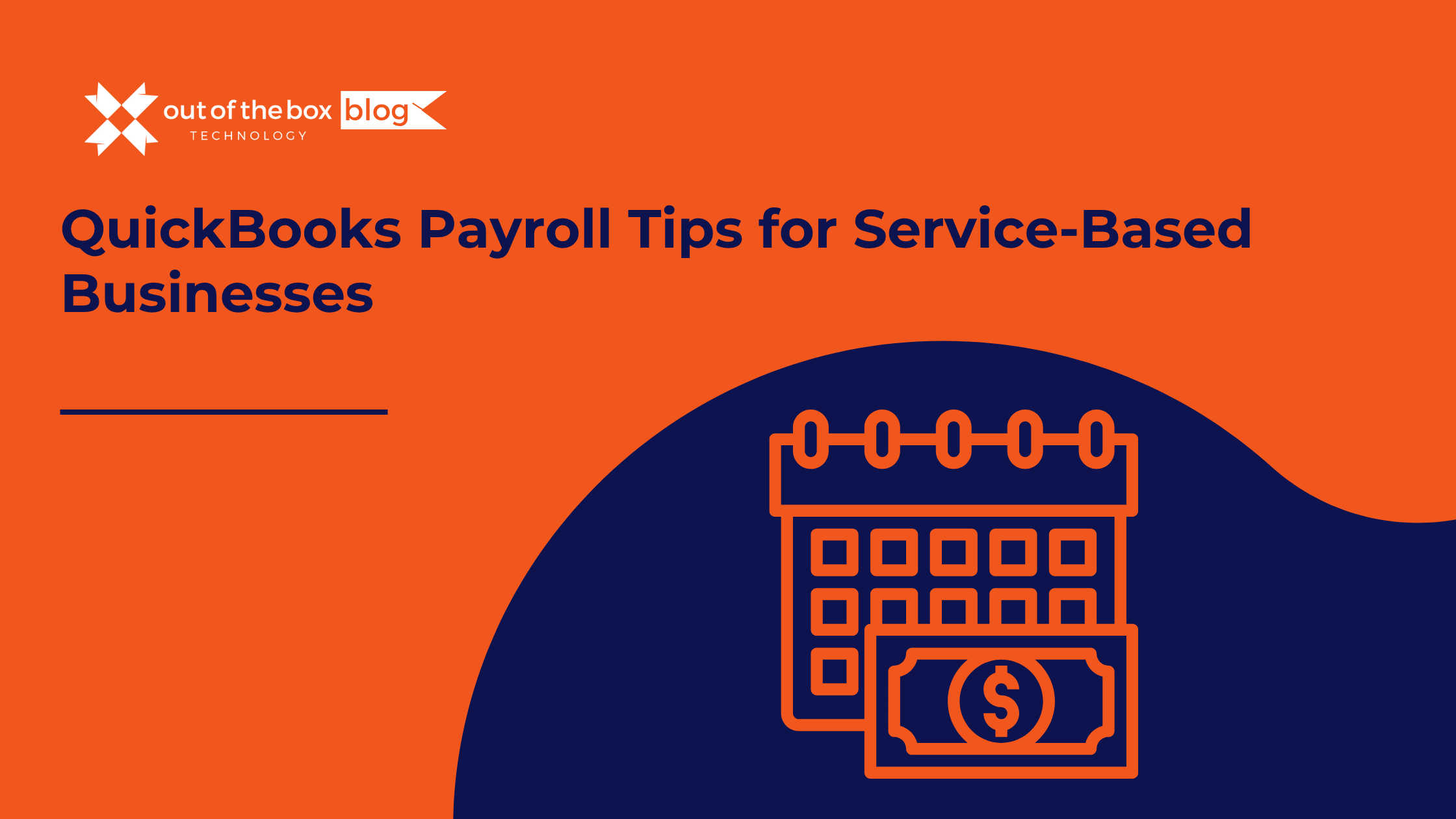The Tipping Point: When DIY Bookkeeping Becomes a Liability
For most new entrepreneurs, the title “Founder” or “CEO” is just one of many hats. You’re also the head of marketing, the lead salesperson, the IT department, and, of course, the bookkeeper. In the early days, handling your own books feels like a savvy, cost-effective choice. A simple spreadsheet or a basic QuickBooks plan seems perfectly adequate to track the modest flow of money in and out. This is the honeymoon phase of DIY bookkeeping.
But as your business grows, that simple task can morph into a complex, time-consuming monster. What was once a quick weekly update becomes a source of late-night stress and nagging uncertainty. You start to wonder: Are these numbers really right? Am I paying too much in taxes, or worse, not enough? Could my time be better spent elsewhere?
This is the critical juncture—the tipping point—where your DIY bookkeeping solution shifts from a smart startup hack to a significant business liability. It’s a transition that catches many successful business owners by surprise. The very growth you’ve worked so hard to achieve creates a level of financial complexity that your current system can no longer support, putting your business at risk.
This comprehensive guide will help you identify that tipping point. We’ll explore the hidden costs of “free” bookkeeping, pinpoint the critical red flags that signal it’s time for a change, and provide a clear framework for making the transition to professional financial management.
The Allure of DIY Bookkeeping: Why We All Start There
It’s easy to understand the appeal of managing your own finances at the beginning. The logic is sound and driven by a few key factors:
- Cost Savings: When every penny counts, hiring a professional bookkeeper or accountant seems like an unaffordable luxury. A $50 per month software subscription feels infinitely more manageable than a professional’s hourly rate or retainer.
- Perceived Simplicity: In the beginning, your financial transactions are straightforward. A handful of invoices, a few expense receipts—it all seems easy enough to manage in a spreadsheet or a simple accounting app.
- Total Control: Many entrepreneurs have a hands-on approach and want to maintain complete control and visibility over every aspect of their business, especially their finances. Giving that control to a third party can feel daunting.
- Learning Opportunity: Some founders see bookkeeping as a chance to learn the financial ins and outs of their business from the ground up.
These are all valid reasons to start with a DIY approach. For a time, it works. But as revenue streams multiply, expenses grow, and your team expands, the initial benefits quickly begin to erode, replaced by hidden costs and mounting risks.
The Hidden Costs of ‘Free’ Bookkeeping
The most significant fallacy of DIY bookkeeping is that it’s “free.” While you might not be writing a check to a bookkeeper, you’re paying in other, often more valuable, currencies.
1. The Cost of Your Time (Your Most Valuable Asset)
As a business owner, your time has a high value. Every hour you spend hunched over receipts, reconciling bank statements, and wrestling with accounting software is an hour you aren’t spending on revenue-generating activities.
Think about it. What is your time worth? Let’s do a simple calculation. If you could spend an extra 10 hours a month on sales, product development, or high-level strategy, how much more revenue could you generate?
- Data Point: A study by The Alternative Board found that CEOs work an average of 62.5 hours per week. If you spend even 5 of those hours on bookkeeping, that’s 8% of your work week dedicated to a task that isn’t your core competency. Over a year, that’s 260 hours—more than six full work weeks.
Imagine what you could accomplish with an extra six weeks focused solely on growth. The opportunity cost of DIY bookkeeping is staggering when you quantify it.
2. The Cost of Mistakes and Inaccuracies
Without a background in accounting, it’s incredibly easy to make mistakes. These aren’t just simple typos; they can have serious financial repercussions.
- Miscategorized Expenses: Classifying a personal dinner as a business meal or a capital expenditure as a simple expense can distort your financial picture and lead to tax problems.
- Inaccurate Financial Statements: Your Profit & Loss (P&L), Balance Sheet, and Cash Flow Statement are the navigation instruments for your business. If they’re based on flawed data, you’re flying blind. You might think you’re profitable when you’re actually bleeding cash.
- Poor Decision-Making: Relying on inaccurate reports can lead you to make disastrous strategic decisions. You might overspend on marketing because you think a campaign is more profitable than it is, or you might fail to cut costs in an area that is secretly draining your resources. According to a CB Insights report, 29% of startups fail because they run out of cash—a problem often rooted in poor financial tracking and management.
3. The Cost of Missed Opportunities
A professional bookkeeper does more than just data entry. They provide insights. They can spot trends, identify opportunities for cost savings, and help you understand your cash flow in a way that empowers strategic growth. When you’re just trying to keep your head above water with data entry, you miss the forest for the trees. You’re not analyzing your numbers; you’re just recording them. This means missing out on valuable insights that could accelerate your growth.
Red Flags: 7 Signs Your DIY Bookkeeping is Hurting Your Business
How do you know when you’ve reached the tipping point? The signs are often subtle at first, but they become more pronounced as your business grows. If you recognize several of the following red flags, it’s time to seriously consider a change.
1. You’re Consistently Behind on Your Books
Are you still reconciling last quarter’s bank statements? Do you have a shoebox (physical or digital) overflowing with receipts you “plan to get to later”?
Being consistently behind is one of the clearest signs your system is broken. Financial data is most valuable when it’s current. If your books are three months out of date, you can’t make informed, timely decisions about your business’s health. You’re constantly looking in the rearview mirror instead of at the road ahead.
Example: A growing e-commerce store owner spends the first week of every month catching up on the previous month’s bookkeeping. Because of this delay, she doesn’t realize her cost of goods sold (COGS) for a popular product has crept up, erasing its profit margin. She continues to run sales on this “hero” product for another month, actively losing money on every unit sold, all because her data wasn’t current.
2. Your Financial Reports Don’t Make Sense
You dutifully run your P&L statement from QuickBooks, but the numbers feel…off. Your sales are up, but your profit is down, and you can’t figure out why. Or your balance sheet shows a large amount of “Uncategorized Expenses.”
These are symptoms of underlying errors in your data entry and classification. If you can’t confidently explain the story your financial statements are telling, you’ve lost control of your financial narrative.
Data Point: A U.S. Bank study found that 82% of business failures are due to poor cash flow management. If you can’t trust your financial reports, you cannot effectively manage your cash flow.
3. Tax Season Fills You With Dread and Panic
For a business owner with clean, up-to-date books, tax time is a straightforward process of handing over reports to a CPA. For the DIY bookkeeper, it’s often a frantic, multi-week scramble to categorize a year’s worth of transactions, hoping you don’t miss anything.
This panic often leads to two costly outcomes:
- Overpaying Taxes: Out of fear of being audited, you don’t claim all the deductions you’re entitled to because your records are a mess.
- Underpaying Taxes: You miscategorize expenses or fail to report income correctly, exposing yourself to audits, penalties, and back taxes. The IRS penalty for “failure to pay” can be up to 25% of the unpaid taxes.
4. You’re Making Big Decisions on a “Gut Feeling”
“We feel like we’re doing well, so let’s hire two more people.” “This marketing channel seems to be working, let’s double the budget.”
While intuition is valuable, it’s not a substitute for hard data. If you’re making significant financial commitments without being able to point to specific numbers on a financial report to back up your decision, you’re gambling with your company’s future. Clean books allow you to calculate customer acquisition cost (CAC), lifetime value (LTV), and profit margins by service or product line, turning gut feelings into data-driven strategies.
5. You’re Seeking Financing or Investors
No bank, lender, or investor will take you seriously without pristine, professionally prepared financial statements. They need to see a clear, accurate, and standardized history of your company’s performance. Handing them a messy spreadsheet or a confusing QuickBooks export is a guaranteed way to get your application denied. They need to see a P&L, Balance Sheet, and Cash Flow Statement, often for the past 2-3 years, and they need to trust the integrity of those numbers.
6. Your Business Has Increased in Complexity
The tipping point is often triggered by growth milestones. Consider if you’ve recently experienced any of the following:
- Hiring Employees: This introduces payroll, withholding taxes, benefits administration, and other complexities.
- Adding New Revenue Streams: Selling products in addition to services, or expanding to new markets, means you need to track profitability for each stream separately.
- Taking on Debt or Inventory: A business loan requires proper tracking of principal and interest. Managing inventory involves tracking COGS and inventory turnover, which is far more complex than simple expense tracking.
- Becoming an S-Corp or C-Corp: These business structures have more stringent compliance and reporting requirements than a sole proprietorship.
7. You Simply Hate Doing It
This may be the most important sign of all. If you despise the task of bookkeeping, you will procrastinate, cut corners, and make mistakes. Your dread of the task will bleed into your overall morale and take mental energy away from the parts of the business you love. Life is too short to spend your precious entrepreneurial energy on tasks you hate and aren’t good at.
The Tipping Point: Quantifying the Switch
Let’s move beyond feelings and red flags and into a simple calculation. You can find your personal “tipping point” by comparing the cost of your time to the cost of a professional.
Step 1: Calculate the Value of Your Time
Be honest about what an hour of your focused, strategic work is worth to the business. A simple way to estimate this is to take your target annual revenue and divide it by 2,000 (a rough number of working hours in a year).
- Formula:
Target Annual Revenue / 2,000 hours = Your Approximate Hourly Value
- Example: If your revenue goal is $500,000, your hourly value is
$500,000 / 2,000 = $250/hour.
Step 2: Calculate the Time You Spend on Bookkeeping
Track your time for one month. Be meticulous. Include everything: entering receipts, reconciling accounts, paying bills, generating reports, and stressing about it.
- Example: Let’s say you spend 12 hours per month on bookkeeping tasks.
Step 3: Calculate Your Monthly DIY Bookkeeping “Cost”
Multiply your time spent by your hourly value.
- Formula:
Hours Spent per Month x Your Hourly Value = Monthly DIY Cost
- Example:
12 hours/month x $250/hour = $3,000 per month.
Step 4: Compare to Professional Bookkeeping Costs
Now, get quotes from professional bookkeeping services. Costs vary, but a small business can often find excellent services for a flat monthly fee.
- Data Point: Monthly bookkeeping services for a small business typically range from $300 to $800 per month, depending on transaction volume and complexity.
The Tipping Point Analysis:
- Your DIY Cost: $3,000 / month
- Professional Service Cost (Estimate): $500 / month
- Conclusion: In this scenario, you are effectively paying $3,000 for a task you could outsource for $500. You are losing $2,500 in value every single month. Furthermore, the professional service will likely do a better, more accurate job. The decision becomes clear.
The Benefits of Professional Bookkeeping: Beyond Just Balancing the Books
Hiring a professional isn’t just about offloading a task you dislike. It’s a strategic investment that pays dividends across your entire business.
- Financial Clarity and Peace of Mind: Instantly know your financial position with accurate, up-to-date reports. Make decisions with confidence and sleep better at night.
- More Time for Growth: Reclaim those lost hours and dedicate them to what you do best: innovating, selling, and leading your team.
- Strategic Advice: A good bookkeeper or fractional CFO service acts as a financial partner. They can help you with budgeting, cash flow forecasting, and identifying key performance indicators (KPIs) to drive growth.
- Improved Cash Flow: Professionals are experts at managing accounts receivable and payable, ensuring you get paid faster and manage your expenses efficiently.
- Scalability: As your business grows, a professional bookkeeping service can scale with you. They have the systems and expertise to handle increasing complexity without missing a beat.
- Audit-Ready Books: Your financial records will be clean, compliant, and ready for scrutiny from the IRS, lenders, or potential buyers at a moment’s notice.
Frequently Asked Questions (FAQ)
Q1: What is the difference between a bookkeeper and an accountant (CPA)?
A bookkeeper is responsible for the day-to-day financial record-keeping: recording transactions, reconciling accounts, managing payroll, and generating financial statements. An accountant or CPA (Certified Public Accountant) typically handles higher-level strategy: tax planning and filing, financial analysis, audits, and business advisory services. Most businesses need a bookkeeper for ongoing tasks and a CPA for year-end taxes and strategic advice. Many modern accounting firms offer both services.
Q2: I’m very private about my finances. Is it safe to hire an outside bookkeeper?
Reputable bookkeeping firms operate under strict confidentiality agreements and use secure software and protocols to protect your sensitive financial data. Their entire business reputation rests on being trustworthy and discreet. Always check references and ensure they have a secure client portal and data protection policies in place.
Q3: Can’t I just use software like QuickBooks to do it all?
Software like QuickBooks Online is an incredibly powerful tool, but it’s just that—a tool. It doesn’t know accounting principles. It won’t stop you from miscategorizing an expense or making an error in reconciliation. A professional bookkeeper uses this software as their tool, applying their expertise to ensure the data going into it is accurate and the reports coming out are meaningful. Think of it like a professional chef using a top-of-the-line oven; the tool is great, but the expertise of the user is what creates the desired result.
Q4: How much does a professional bookkeeper cost for a small business?
The cost varies based on your transaction volume, the number of bank/credit card accounts, whether you have payroll, and the level of reporting you need. For a small business, a typical monthly retainer for core bookkeeping services can range from $300 to $800. More complex businesses might pay over $1,000 per month. It’s almost always less than the opportunity cost of doing it yourself.
Q5: When is the best time of year to switch to a professional bookkeeper?
The best time to switch is now. However, many businesses find it convenient to make the change at the beginning of a new quarter or at the very beginning of the fiscal year. This allows for a clean cut-off point. A good bookkeeping firm can onboard you at any time and will often perform a “clean-up” of your previous months’ books to ensure a seamless and accurate transition.
Conclusion: Reclaim Your Time, Secure Your Future
The journey from a passionate founder to a successful CEO requires a constant evolution of your role. It means strategically letting go of tasks that are no longer the best use of your time. Bookkeeping is one of the first and most critical tasks to delegate.
Continuing to handle it yourself past the tipping point doesn’t save you money; it costs you growth, exposes you to risk, and drains your most valuable resource—your time and energy.
Take an honest look at your business and your role in it. Are the red flags waving? Have you done the math on your time? If so, the choice is clear. Making the investment in professional bookkeeping isn’t an expense. It’s a strategic move to secure your financial foundation, unlock new insights, and free yourself to lead your business into its next chapter of growth.
Schedule a QuickBooks Consultation





